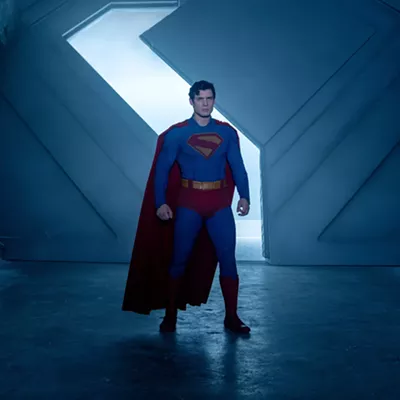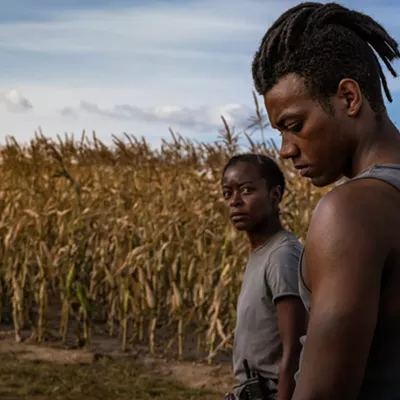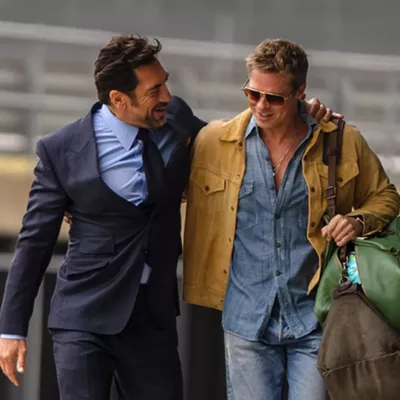All humans have habits, some of them bad. But Brandon Sullivan’s bad habits have curdled into full-on addiction. The kempt escorts with whom he politely negotiates terms, the workaday masturbation breaks, the Internet porn he watches, the foot-fidgeting to accompany a dinner of leftover takeout: This is Brandon’s everyday landscape, as commonplace to him as another’s crossword puzzle or nail clipping.
Of course, there’s nothing commonplace about the ability to bring a fellow subway commuter to near-climax with a well-placed gaze — and if that sounds implausible, perhaps you’ve not yet laid eyes on Michael Fassbender, who plays Brandon. A German/Irish actor, he comes packaged with a ramrod Teutonic posture and a Gaelic rogue’s easy smile, and he bares all — yes, all — in a performance of exquisite control and spasming anguish.
Early on, Brandon’s sustaining sense of routine is upended by the sudden arrival of Sissy, a name that reeks of deliberate infantilization. Played by Carey Mulligan with a previously unseen bravura, Sissy is Brandon’s needy, chancy younger sister, a cabaret chanteuse who tunes her heart-knifing alto to Kander and Ebb’s “New York, New York” and slow-moans it like it’s a funeral dirge. Where Brandon is ordered and emotionally closed off, Sissy is erratic, fairly lunging at any warm body that might warm her back. (Her film entrance is scored clamorously to Chic’s disco hit, “I Want Your Love.”) An indeterminate damage has been done to them both (the nearest we get to an answer is Sissy’s assessment that “we’re not bad people, we just come from a bad place”), and whatever that long-ago damage was, it has steered the course of all future emotional and physical entanglements, including the siblings’ own provocative push-pull.
Steve McQueen, a British video-installation artist who previously collaborated with Fassbender in his feature debut, 2008’s Hunger, has stripped all fat from this obsessively stylized follow-up. From the unadorned score by Harry Escott to cinematographer Sean Bobbitt’s isolating framing, this is a film with a single-minded, supremely uneasy focus.
Some critics have complained that McQueen and co-writer Abi Morgan (who also penned the upcoming Margaret Thatcher film The Iron Lady) have produced an incomplete-feeling portrait of Brandon — his job is a mystery, his back-story a smudge — but isn’t that rather the point? Brandon’s addiction has become so all-consuming as to become the defining fact of his life; who gives a toss what his business card reads?
The narrative elaboration that does exist (a predilection for Glenn Gould recordings of the Goldberg Variations and long runs through New York City) are there to further inform Brandon’s relationship to his disease, revealing, say, a sympathetic kinship to another disordered mind and the discipline of those runs as antidote to his self-abandonment to sexual urges.
Shame is spare enough to accommodate that kind of psychologizing, although you might be too awash in grimness to bother with theories until afterward.
Equally harrowing and heartrending, Shame is a film that feels akin to going into battle, and I, for one, didn’t emerge unscathed.

















